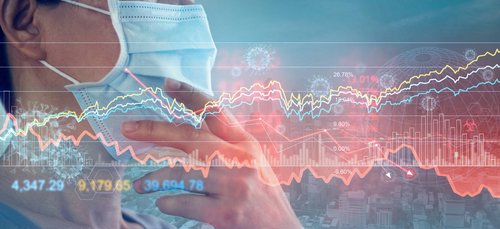Brussels (Brussels Morning) The latest report of the World Bank (WB) predicts that growth of the global economy is to slow down this year and next.
In the report released on Tuesday, the WB pointed out that uncertainty and income inequality are the main reasons why growth is expected to slow down in the coming years, DW reports.
The coronavirus crisis disrupted global supply chains and affected almost all parts of life, with businesses closing and poverty increasing after decades of decline, the report states.
Despite disruptions, the global economy grew roughly 5.5% last year, but the WB stressed in its Global Economic Prospects report that the year ahead does not look as promising.
It expects global GDP to slow to 4.1% this year and then further to 3.2% the following year, and cites among negative risks for the near term high costs of shipping, energy and food, as well as soaring inflation.
According to The WB, developed economies such as those of the EU, the US, Australia, Israel, Japan and South Korea will drive growth this year since they all expect to reach pre-pandemic levels of output soon.
Inequalities to deepen
The bank added that most developing economies will lag behind due to “lower vaccination rates, tighter fiscal and monetary policies, and more persistent scarring from the pandemic.”
It pointed to uncertainty as the main obstacle to growth insofar as changing epidemiological trends and policies aimed at curbing the spread of coronavirus make planning next to impossible.
The WB also said that unprecedented government spending presents additional risks, given that governments took on large amounts of debt. Global debt reached 263% of global GDP, the highest level in the last 50 years or so, the report observed.
It predicted that roughly one half of the economies in sub-Saharan Africa, North Africa, the Middle East, East Asia and Latin America will not reach their respective 2019 GDP per capita levels by the end of this year.
On the other hand, developed economies are expected to recover faster and reach pre-pandemic levels this year, a development that will serve to deepen inequalities.
Overall, the WB urged focusing on “growth-enhancing policy interventions to promote green, resilient and inclusive development and on reforms that broaden economic activity to decouple from global commodity markets.”




